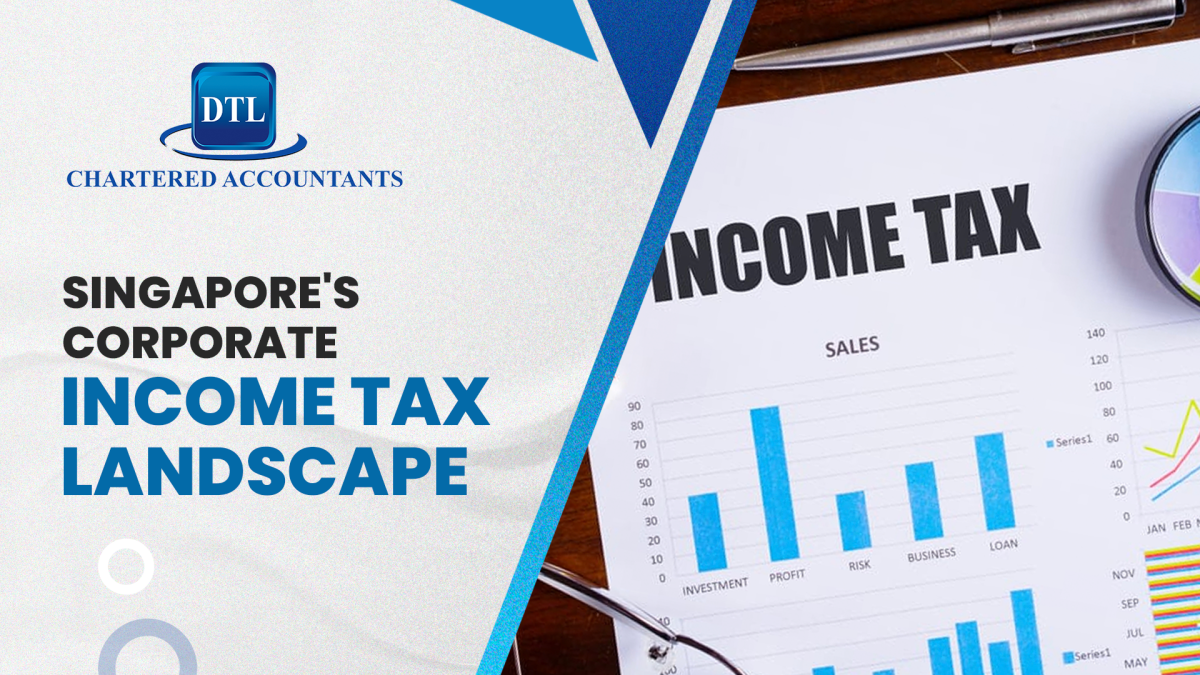Navigating Recent Reforms and Anti-Avoidance Measures
Singapore continues to strengthen its position as Asia’s premier business hub through strategic tax reforms that balance competitiveness with international compliance. The past few years have witnessed significant changes in corporate income tax policies, driven by global initiatives and evolving business models. Companies operating in the Lion City must stay informed about these developments to maintain compliance and optimise their tax strategies.
OECD BEPS Implementation: Reshaping International Tax Planning
The Organisation for Economic Co-operation and Development’s Base Erosion and Profit Shifting (BEPS) initiative has fundamentally transformed how multinational corporations approach tax planning. Singapore’s proactive adoption of BEPS measures demonstrates its commitment to maintaining tax transparency while preserving its competitive edge.
Under BEPS, Singapore requires Country-by-Country Reporting (CbCR) for Singapore-headquartered ultimate parent entities (UPEs) with consolidated group revenue of S$1,125 million or more (aligned with the OECD €750m benchmark). Reports must disclose revenue, profits, taxes paid, and business activities across all jurisdictions in which the group operates.
The Multilateral Instrument (MLI) has modified many of Singapore’s double taxation agreements (DTAs), introducing the Principal Purpose Test (PPT) to prevent treaty shopping. This has direct implications for how businesses structure regional operations, especially regarding substance requirements in various jurisdictions.
Singapore’s participation in the Inclusive Framework on BEPS ensures ongoing alignment with global standards, while requiring companies to demonstrate genuine economic substance in Singapore to access preferential tax treatment.
Digital Economy Taxation: Adapting to E-Commerce Growth
Singapore has not introduced a separate digital services tax. Instead, the current 9% Goods and Services Tax (GST) applies to imported digital services under the Overseas Vendor Registration (OVR) regime, and to low-value goods from 1 January 2023. This ensures tax neutrality between domestic and foreign providers of digital services such as software, apps, and streaming subscriptions.
For corporate income tax purposes, Singapore’s nexus rules remain based on the traditional permanent establishment (PE) concept under domestic law and DTAs. There is no legislated ‘significant digital presence’ rule for income tax.
E-commerce platforms are under increasing scrutiny regarding their economic substance. To qualify for Singapore’s tax incentives, companies must show genuine local decision-making, risk management, and value creation, not merely booking transactions through a Singapore entity.
Withholding Tax Reforms: Streamlining Cross-Border Transactions
Recent modifications to Singapore’s withholding tax regime have simplified compliance while Singapore’s withholding tax (WHT) regime continues to balance administrative simplicity with anti-avoidance safeguards. Unless reduced by a tax treaty:
Interest / movable property rentals – 15% final WHT
Royalties – 10% final WHT
Service fees (including technical and management) – taxed at the prevailing corporate rate (currently 17%) via WHT where services are performed in Singapore, unless a treaty’s technical services article applies.
Under the long-standing Qualifying Debt Securities (QDS) scheme, interest and discount from qualifying bonds and notes may be exempt from WHT. The scheme has been extended several times to reinforce Singapore’s role as a regional debt financing hub.
For treaty-based WHT relief, payers must ensure that the recipient is the beneficial owner and meets all treaty conditions, including certificate of residence requirements.
For the latest withholding tax rate, refer to the IRAS website.

Enhanced Anti-Avoidance Measures: Strengthening Tax Integrity
Singapore’s section 33 General Anti-Avoidance Rule (GAAR) targets arrangements lacking commercial rationale and undertaken primarily to gain tax advantages. IRAS guidance stresses the importance of genuine business purpose and adequate economic substance.
Key substance requirements include:
Holding companies seeking concessionary tax treatment must have qualified local personnel, regular board meetings in Singapore, and in-country decision-making.
The Intellectual Property Development Incentive (IDI) grants concessionary rates of 5%, 10%, or 15% on qualifying IP income, calculated under the modified nexus approach; recipients must conduct substantial R&D or development activities in Singapore.
Transfer pricing (TP) compliance has expanded:
Companies must maintain both local files and master files if they exceed prescribed thresholds.
IRAS accepts a 5% cost mark-up for certain low-value-adding intra-group services and publishes annual indicative margins for related-party loans.
Compliance Challenges and Opportunities
Modern tax compliance extends beyond traditional filing requirements. Companies must now consider substance documentation, beneficial ownership verification, and digital presence assessments as integral parts of their tax strategy.
Examples of ongoing compliance measures:
Safe harbours – IRAS TP administrative practices help reduce disputes for certain transactions.
Digital reporting – E-filing is mandatory; the InvoiceNow e-invoicing mandate for new government suppliers begins April 2026 (soft launch May 2025).
Enhanced penalties – Increased financial consequences for deliberate tax avoidance or failing substance requirements.
Strategic Implications for Business Operations
Businesses should re-evaluate their operational structures, documentation, and compliance systems to meet these evolving standards. Regional headquarters and shared service centres must demonstrate real management functions, risk assumption, and value creation in Singapore.
This heightened emphasis on substance also creates opportunities—firms investing in meaningful local activities can continue to benefit from Singapore’s competitive tax regime and extensive treaty network.
Looking Ahead: Future-Proofing Your Tax Strategy
Global tax rules will continue to evolve. From 1 January 2025, Singapore is implementing the Income Inclusion Rule (IIR) and a Domestic Top-up Tax (DTT) for multinational groups with annual revenue ≥ €750m, to align with the OECD Pillar Two 15% global minimum tax.
Regular reviews of structures, documentation, and compliance practices will help companies remain aligned with both current and anticipated requirements.
Expert Guidance for Complex Tax Landscapes
Navigating Singapore’s corporate income tax regime now requires not only technical knowledge but also strategic foresight. The interplay between BEPS implementation, GST changes, substance rules, and global minimum tax makes professional advice invaluable.
The complexity of BEPS implementation, digital economy taxation, and enhanced anti-avoidance measures requires professional guidance to ensure compliance while optimising tax efficiency. DTL Accounting Group offers comprehensive tax advisory and compliance solutions, helping businesses understand and adapt to Singapore’s changing tax landscape. Our experienced team provides strategic insights and practical solutions that enable companies to thrive in Singapore’s competitive business environment while meeting all regulatory requirements.

